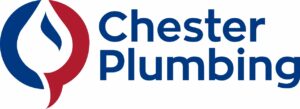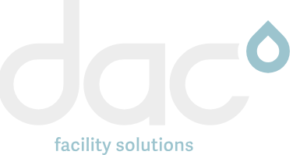
COVID-19 Crisis :
Tips for Saving Your Contractor Business
The novel coronavirus pandemic has upended the economy, making it difficult for small business owners to continue operating. Contractors across the U.S. worry about how to keep their businesses intact during and after the pandemic. While the economic environment is challenging, there are several options that contractors must protect their companies and their workers. By taking preventative measures, contractors can keep their companies and their employees safe and emerge from the pandemic intact.


Project delays and work stoppages
According to a survey conducted by the Associated General Contractors of America, the mild winter this year led to an increase in construction spending in January and February. In February 2020, the level of construction spending increased by 6% as compared to February 2019. While this spending increase and the previously robust economy heralded a period of growth for the construction industry, the COVID-19 pandemic completely changed everything. The AGC surveyed 1,600 contractors from March 23 to March 26 and found that 39% were ordered to stop working on projects by both governmental agencies and project owners. An additional 45% of the respondents reported that they had experienced delays in projects.
Steps for dealing with
Work stoppages and project delays
Dealing with work stoppages and project delays can be difficult for any business. It is difficult for a company to continue operating when its revenue sources dry up. Contractors should take some steps in advance of a potential work stoppage to limit the damage, including the following:
- Create a plan
- Cut discretionary spending
- Identify the operational needs
- Identify alternatives
- Keep lines of communication open
We’ll look at each of these steps below.
1. Create a plan
For businesses that have not yet experienced work stoppages, they should anticipate that they will likely occur on one or more projects. During the COVID-19 pandemic, work stoppages should be viewed as an operational risk that requires planning. You should plan for the potential of work stoppages. Your continuity plan should include different scenarios and ensure that your employees who will be responsible for management and operations are familiar with your business’s policies. Having a plan in place can help to prevent your company’s management from panicking and trying to implement ad hoc approaches that may not be beneficial.

2. Cut discretionary spending
Project delays and work stoppages can harm your company’s cash flow. Because of this, the pandemic is not the right time for your company to make significant equipment and inventory purchases. If you are not able to operate during a work stoppage, you should not purchase inventory with high storage costs. You should also put off unnecessary traveling and turn to online options to conduct meetings and business. Avoid starting large projects that will not be finished in a work stoppage. If you can, put off building until the stoppage or delay ends.

3. Identify your business’s operational needs
If your business is essential and will continue operating during the pandemic, you should create a staffing plan. As the virus spreads, some workers will be forced to quarantine or self-isolate at home, and others may be sickened and hospitalized. You will need to have a plan to replace people with crucial skills to ensure that you will have enough employees to continue operating. It may be a good idea for you to work with a staffing agency that can provide you with the labor that you need with little notice. Using temporary labor to fill positions until your workers can return can help your company to continue operating during the pandemic while also helping the local economy.

4. Identify alternatives
When you are planning for potential work stoppages, remember that your plan should include stoppages that can occur elsewhere and impact your business. For example, work stoppages might occur in your company’s supply chain. This makes it vital for you to identify alternative suppliers if yours are unable to fulfill your orders because of their stoppages. Because it can be challenging to change your supply chain logistics on short notice, you should plan well in advance for this type of issue.

5. Keep lines of communication open
Small Business Trends reports that 27% of small businesses believe that COVID-19 will negatively impact their revenue. Another 30% of small businesses believe that the pandemic will harm their supply chains.
Keeping your lines of communication open is crucial during the pandemic. Talk to your partners, local officials, investors, and suppliers every day. This can help you to begin to implement safeguards to help your company to remain in the black while the government works to limit the spread of COVID-19. Plan for it to take some time for your business to return to its former operational level.

Protecting employees
Contractors recognize that their most valuable resources are their employees. It is not possible to complete projects and continue business operations without having the workers that you need. Part of protecting your employees involves taking steps to ensure that they remain safe while they are working at your company’s job sites.
There are several things that you can do to protect your employees, including the following:
- Offer remote work options
- Skip conferences and business travel
- Be flexible
- Be stringent about hygiene and safety practices
We will discuss each of these strategies in more detail below.
1. Offer remote work options
Contractors usually have several people who work in their companies’ central offices. Contractors with more substantial companies may have people working in multiple office locations. In today’s modern environment, many people work remotely. There are many tools that businesses can use to facilitate remote work. Using comprehensive project management and finance software can make it easier for your workers to do their jobs from home by using a mobile app.
You should draft a policy for remote work that includes your expectations for your team. Your policy should discuss when your employees should be available or online, the communication methods that will be used, and the responsibilities of each member of your team.

2. Skip conferences and business travel
During the COVID-19 pandemic, it is essential to minimize the risk of your employees being exposed to the virus. Now is not the time to hold in-person team meetings, attend conferences, or expect your employees to complete other types of business travel. If you insist that your employees engage in business travel, you could have potential liability risks if they are sickened because of it. Expecting your employees to attend conferences or travel could also result in lowered morale and increased numbers of sick leave requests. If you must have team meetings, schedule them virtually. Cancel planned conferences and put off any business travel until after things return to normal.

3. Be flexible with your employees
As the coronavirus spreads across the U.S., offices, stores, schools, and businesses are closing. This makes it essential for you to be flexible with the expectations that you have of your employees and their time. Some of your employees might have to stay at home to take care of their children. Being flexible, allowing your workers to work from home where possible, and having a contingency plan for the possibility of being short-staffed is essential. Being flexible and understanding with your employees can also help to maintain their morale during difficult times.

4. Be stringent about hygiene and safety practices
For workers who work at project sites, having safety and hygiene policies in place is critical. Contractors are familiar with the importance of following the Occupational Safety and Health Administration’s regulations for worker safety at construction sites. Besides having OSHA-compliant policies in place, you should now incorporate the recommendations of the U.S. Centers for Disease Control and Prevention. Write policies that include the CDC’s guidance for hygiene and worker safety, and make sure that your supervisors enforce them.
Your employees should not shake hands, and they should work more than six feet away from each other. They should be wearing masks and gloves in addition to their other safety equipment. Encourage your employees to avoid touching their faces and ask them to thoroughly wash their hands frequently during the day. All surfaces should be regularly disinfected to prevent the spread of the virus. If an employee is ill, he or she should be told to remain at home. Your supervisors and managers should not retaliate against workers for staying at home and taking sick leave when they are sick. Be as proactive as you can to keep your workers safe.

Dealing with
Cash flow, payroll, and revenue shortages
A significant problem faced by contractors and other businesses across the U.S. during the pandemic is cash flow, payroll, and revenue shortages. Some companies are closing their doors because they do not have access to the capital that they need to continue operating their businesses. Having access to working capital is critical at this time, and companies should begin planning so that they will have money available when they need it.
The Coronavirus Aid, Relief, and Economic Security Act was passed by Congress and signed into law by the president on March 27. This law includes relief for small businesses that are dealing with economic harm because of the pandemic. Under the law, there are several types of assistance available to companies, including contractors.
The Paycheck Protection Program was created to encourage small businesses to keep their employees. It does this by offering a forgivable loan to companies that use the money for payroll, mortgage interest, rent, or utility for at least eight weeks. This program is an expansion of the Small Business Administration’s 7(a) loan program, and you can apply for it through any SBA 7(a) provider.
The Economic Injury Disaster Loan Advance program offers businesses that are facing temporary setbacks because of the coronavirus with loan advances of up to $10,000. Companies that are approved for this loan advance will not be required to repay it.
The SBA Express Disaster Bridge Loan program is a pilot program that allows eligible businesses to receive up to $25,000 in loan funds. Companies that have dire needs while they are waiting for their EIDL advance applications to be approved can apply for this loan. Then use the EIDL funds to repay a portion of the bridge loan. The companies will then need to pay the remaining balances of their bridge loans over a set term.
Finally, contractors that have existing SBA loans might benefit from the SBA Debt Relief program. Through this program, the SBA will pay the principal and interest of existing microloans, 7(a) loans, and 504 loans for six months. The agency will also pay the principal and interest for new loans that are issued before September 20, 2020. Businesses that had existing SBA disaster service loans as of March 1, 2020, can enjoy automatic payment deferrals until December 31, 2020. Interest will accrue on these loans during this period.
Insurance coverage
Most contractors carry business interruption coverage as a part of their insurance policies. If you have this type of coverage, it is an excellent time to review your policy and talk to your insurance agent. Insurance coverage can help contractors keep their businesses intact during the COVID-19 crisis. Understanding the types of coverage that you have can help you to know how you might be protected. Consulting with an insurance law attorney might be advisable if your insurance company tries to argue that coverage is not available to you.
The COVID-19 crisis is presenting problems for businesses across the U.S. With smart planning and taking proactive measures, contractors can protect their businesses and keep them intact during and after the pandemic. Using robust business software solutions from Sitepod can help contractors to manage everything from one place, streamline their business operations, and increase their efficiency.











